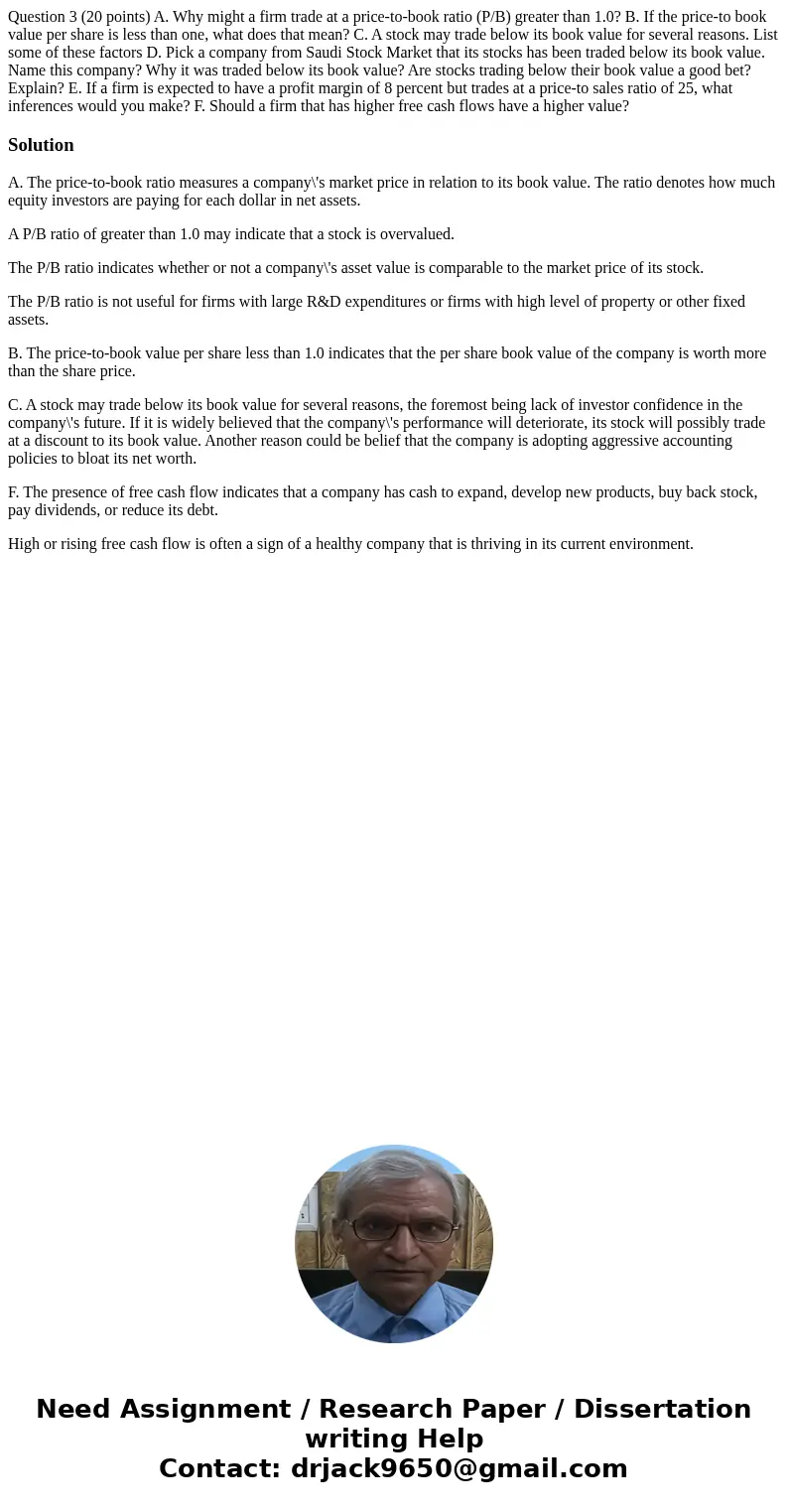Question 3 20 points A Why might a firm trade at a pricetobo
Solution
A. The price-to-book ratio measures a company\'s market price in relation to its book value. The ratio denotes how much equity investors are paying for each dollar in net assets.
A P/B ratio of greater than 1.0 may indicate that a stock is overvalued.
The P/B ratio indicates whether or not a company\'s asset value is comparable to the market price of its stock.
The P/B ratio is not useful for firms with large R&D expenditures or firms with high level of property or other fixed assets.
B. The price-to-book value per share less than 1.0 indicates that the per share book value of the company is worth more than the share price.
C. A stock may trade below its book value for several reasons, the foremost being lack of investor confidence in the company\'s future. If it is widely believed that the company\'s performance will deteriorate, its stock will possibly trade at a discount to its book value. Another reason could be belief that the company is adopting aggressive accounting policies to bloat its net worth.
F. The presence of free cash flow indicates that a company has cash to expand, develop new products, buy back stock, pay dividends, or reduce its debt.
High or rising free cash flow is often a sign of a healthy company that is thriving in its current environment.

 Homework Sourse
Homework Sourse